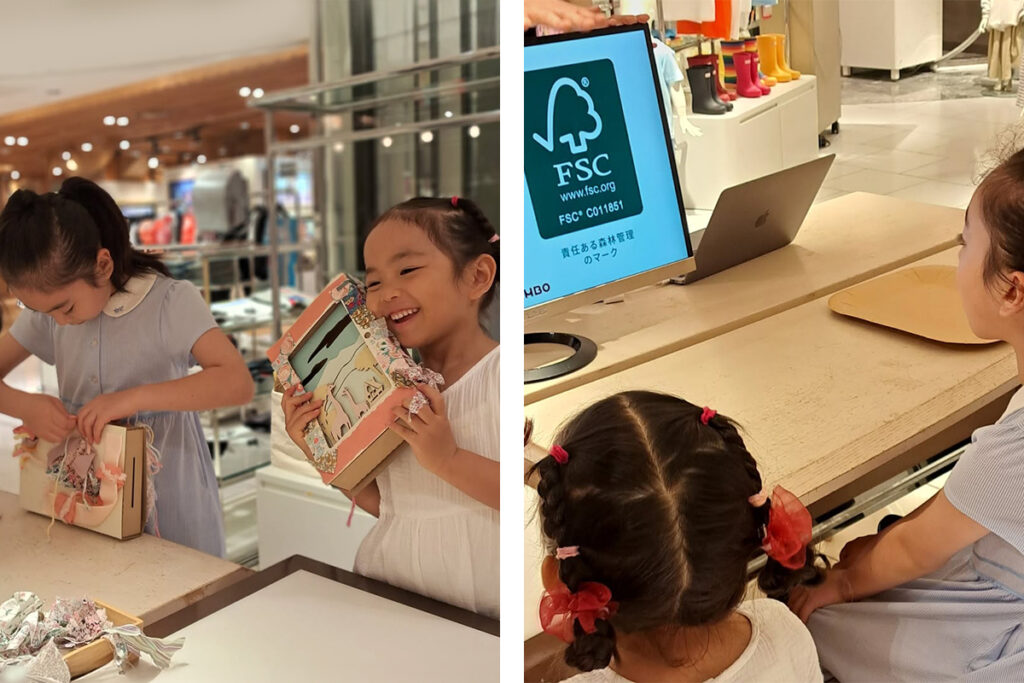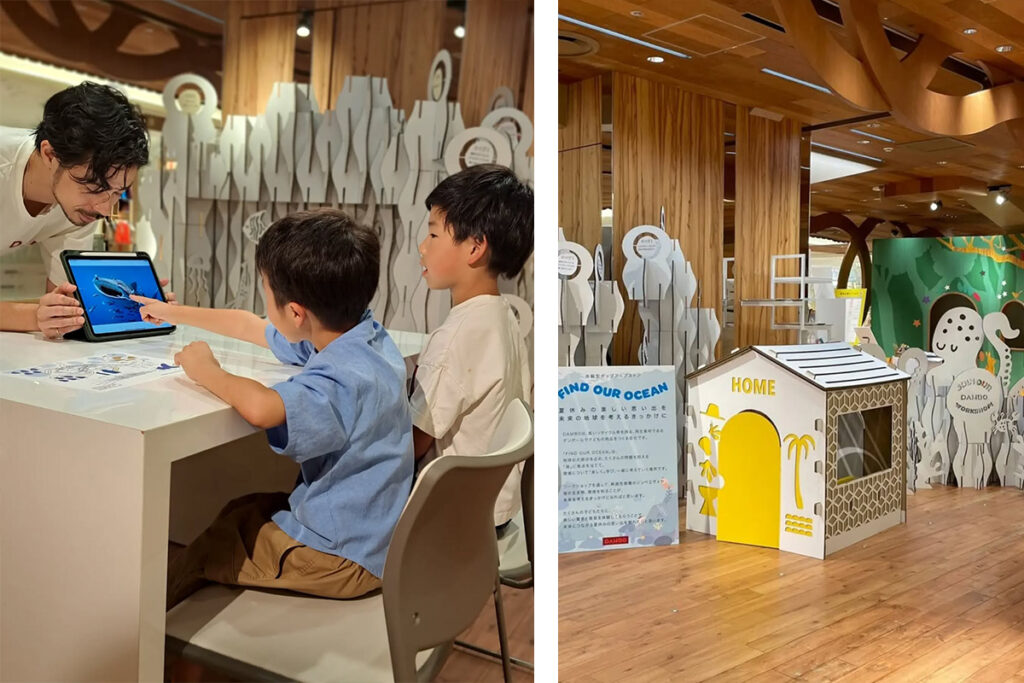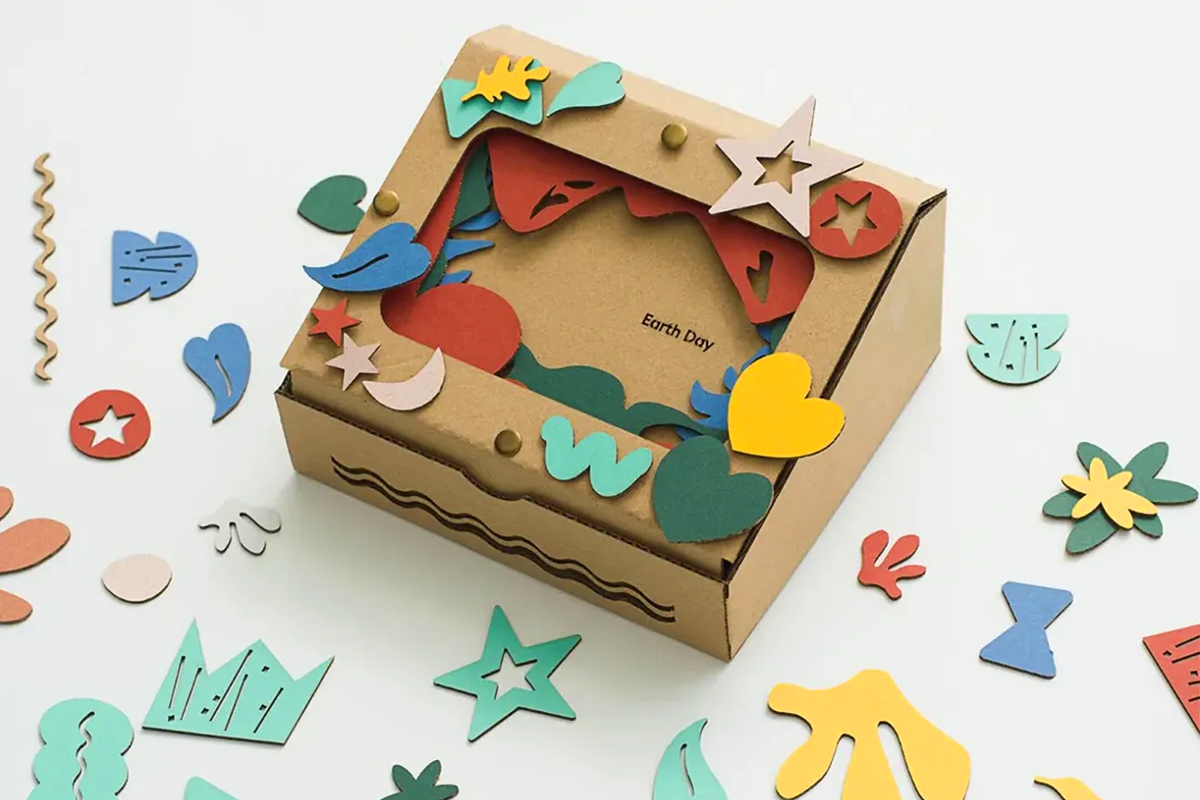Eco-conscious Learning with Dambo Tokyo
This year, Tokyo experienced startlingly high temperature levels, painting an ominous picture for what the rest of the year might hold. Schools across Japan have begun implementing strict heatstroke prevention measures since last year’s spike in temperatures, calling for restrictions on the time children spend engaging in outdoor activities to prevent heatstroke.
With severe weather conditions affecting parts of the country and the rest of the world, parents may be considering ways to discuss topics such as climate change with their children in a way they can comprehend and connect with.
Bringing education, the Earth and positive experiences together lies at the core of Dambo’s mission, a Japanese children’s lifestyle brand that is changing the way kids and their parents interact with the world around them. Starting as a sustainable kids’ toy and furniture brand, they have since expanded their horizons, hosting seasonal workshops where participants can learn about climate change through interactive arts & crafts activities accompanied by expert-informed lessons on endangered species and ecological events. Dambo uses recycled cardboard to produce all of their materials, showing their customers that renewable materials have infinite potential and are easy to incorporate into daily life at home.

Why are brands such as Dambo Tokyo so important for kids in Japan right now?
Working with educators such as the Waseda Children’s Field Science Club and top designers across Japan, Dambo curates unique one-week-workshops that are held multiple times a year. By blending subjects such as cute endangered species with deeper topics such as climate change, co-founders Yukina Shibata and Akihisa Ueno aim to inspire empathy in their participants, encouraging conscious consumption.
Ueno commented about what attracts workshop participants to come back saying, “It’s not just about crafting; there’s learning involved. We strive to create learning experiences that are, at their core, fun.”
The bulk of Dambo’s workshops kick off with an informative 30-minute lecture introducing the brand’s mission and a seasonal topic, such as the black-headed gull in early summer or pollinator bees in spring. Children are taught how to look for FSC (Forest Stewardship Council) certification trademarks—a label found on products that use wood or paper sourced from responsibly managed forests—on their favorite snack cartons, inspiring ways for parents to increase their children’s eco-consciousness. Dambo uses a quiz section of the lecture to encourage kids to mingle and rouse engagement from children and parents who are often participating alongside their little ones.
Dambo has become a staple in their customers’ holiday plans as safe indoor spaces for kids to enjoy their holidays and prepare for the coming school year have become a necessity. Attendees range from brand friends and regulars to first-timers and tourists, as Dambo provides bilingual assistance and lectures at their events.

How does Dambo show that its learning is truly effective?
Fun comes in the form of uniquely-colored cardboard and artfully designed products with utility, such as whale shark pen stands and “treasure boxes” patterned with African animals that are tied to stories of ocean pollution and drought. Children are encouraged to decorate their creations with recycled fabric scraps and donated materials. This teaches kids about the upcycling process and encourages them to reflect on other items they can reuse to spruce up their arts & crafts projects. Ueno said, “By getting their hands dirty with crafts, they come to address [learning about the environment] as enjoyable and personally relevant, creating important memories.”
At the end of every workshop, it all comes back to education as children are asked to recall what they learned and are taught what they can do to lead eco-conscious lives.
Ueno comments on Dambo’s impact following their interactive workshops saying, “by featuring endangered animals in our workshops, we’re able to spark even a little bit of interest in environmental issues among children and parents. I’ve heard stories of children who attended workshops choosing the topics we taught for research projects at school and lecturing their peers, or finding products with FSC certification marks and pointing them out.” To Ueno, success manifests most meaningfully in the ways people choose to act after engaging with the brand.
Hosting kids’ workshops in Fukuoka and Osaka within the last year alone, Dambo is addressing tough topics in a nationwide fun learning environment . Conscious of the threat of natural disasters and severe weather to the lives of Japanese people, they’ve diversified to include aesthetic yet easy-to-build, disaster-friendly structures as part of their product roster and invite people to bring recyclable materials into the household for reasons other than just eco-friendly living.
Discover ways you can bring conversations on eco-consciousness into the household by learning alongside Dambo at an upcoming workshop in Ebisu on November 29-30. Register by messaging their Instagram or learn more by visiting their website (Japanese only).

